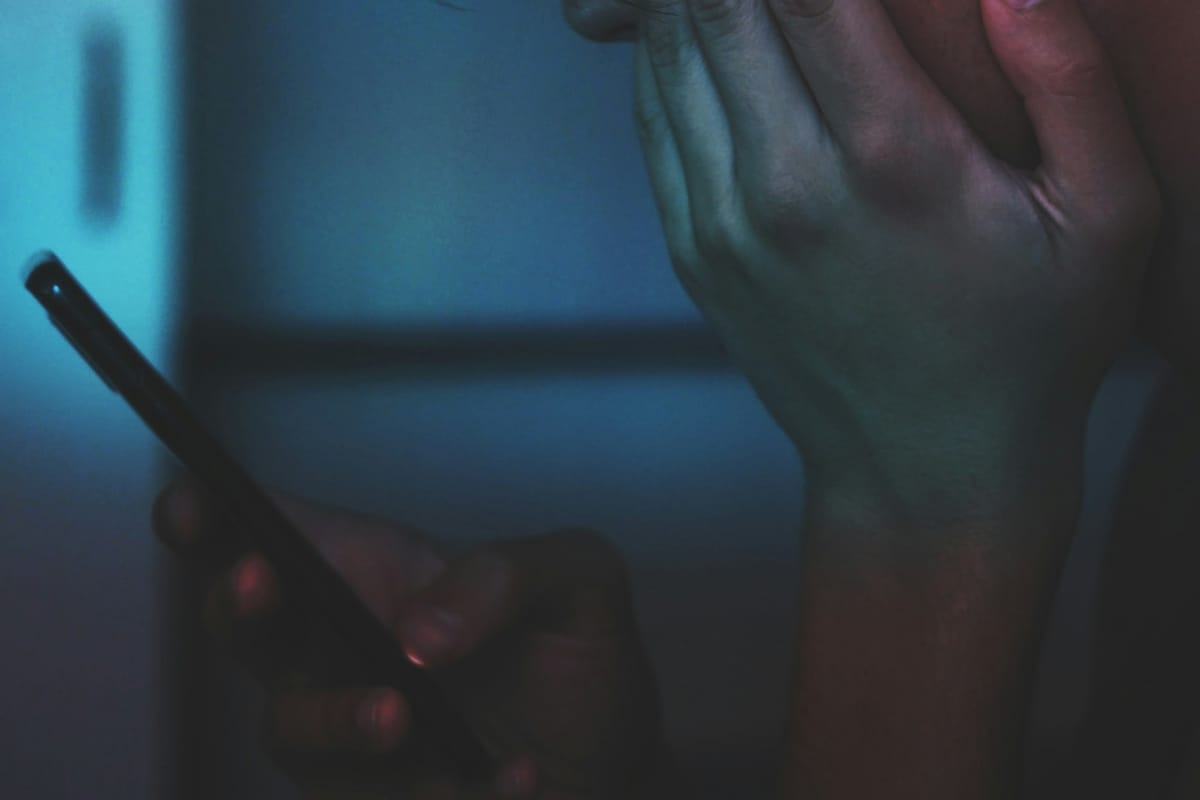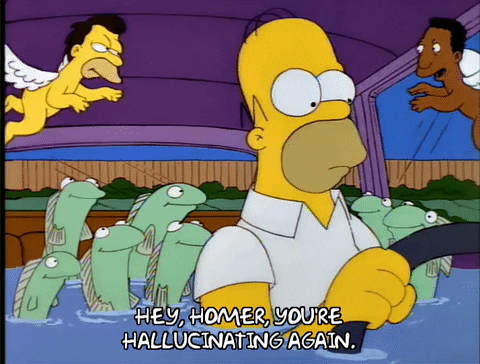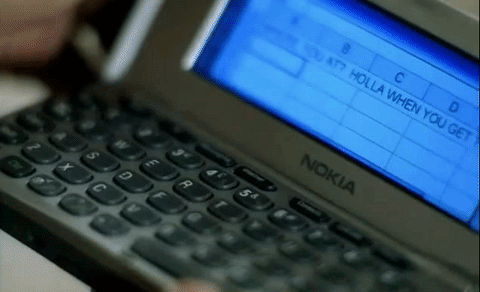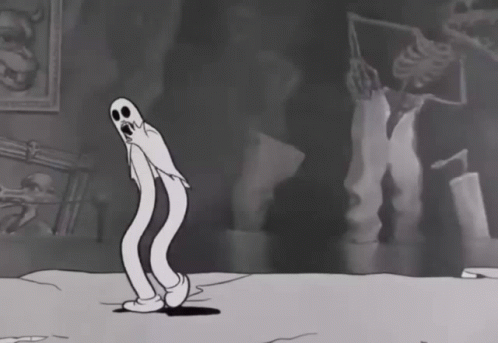How to Overcome FOMO

Recently, I was watching this Johnny Harris video titled How to Remember Your Life. In his video, he explores a simple topic; how he goes about organizing photos. Today’s smartphones are incredible tools, and with the advancements in smartphone camera technology, you’ve probably started taking more photos than you know what to do with (I know I fall into this camp). Essentially, what Johnny tries to do is only keep select photos in his library, ones that spark particular emotions and memories. If a photo doesn’t do that, or if you already have 15 other copies, delete them; only keep photos of what you can remember.
After watching this video, I went back through my own Google Photos library, and I realized just how absolutely right he was. When my girlfriend, best friend, and I drove across Canada in 2016, the three of us took a whopping combined total of 4,749 photos. When my girlfriend and I did a two-week road-trip across Arizona and Utah in 2018, we took 1,574 photos. Our trip to California yielded 1,353 photos and week-plus in Spain resulted in 783 photos. Yet, when I went through the photos after each trip, there were maybe 50 or so that really made me think about specific memories from those trips.
You’ve heard it before; put down the phone and enjoy the entire full-body experience of the concert. Set the camera aside and feel the wind upon your face as you stand at the edge of Angel’s Landing, looking down into the valley of Zion Canyon and the Virgin River.
The thing is that it’s much harder to do in practice than it is in theory. We all want to have that picture of something we accomplished. But even beyond that, we simply want to share with others the things that we are doing and have done. That’s the entire premise of Instagram - capture and share the world’s moments, because after all, pics or it didn’t happen.
So, why was I busy taking so many photos? Was that 11th photo of mountains or that 15th photo of the same waterfall really necessary?
Part of the problem I think is that digital photography made it so easy to take (and delete) thousands of photos. The other, far bigger problem, however, is that I think part of this stemmed from my fear of missing out (or FOMO, as the youths call it). In taking quite literally thousands of photos, I was hoping that I wouldn’t miss out on any detail from my travels, but as Johnny put it in his video, I was missing out on something else entirely; my life.
The fear of missing out - whether it’s the actual experience itself, a juicy piece of news, or the act of sharing - is very real. So, how do you reign in this fear so you can take fewer photos, or use social media less, and just enjoy the experience of being where you are for what it is?
In a 2018 study called No More FOMO: Limiting Social Media Decreases Loneliness and Depression, researchers found that by cutting the usage of social media not only lowered rates of FOMO but also anxiety, depression and loneliness among a group of undergraduate students. The researcher who designed this study specifically wanted the students to continue using social media, but with limits, as they viewed a complete abstention would be unrealistic” and that, “limiting Social Networking Sites [SNS] use seems more likely to be acceptable and sustainable.”
In retrospect, this all seems very obvious, and clearly, moderation, not abstinence, is an ideal path forward. But, how do you moderate?
Last week, I wrote about 5 things that I do every day to help me stay focused and avoid procrastination. Item number three on that list was to not only disable essentially all notifications on my phone but set app limits using Android’s Digital Wellbeing (Screentime on iOS). In limiting how much time I spend using those apps on my phone (which are designed to be frictionless, wherein their desktop counterparts aren’t), I was less inclined to use them throughout the day, lest I run out of my allotted time and have to wait until the next day in order to get my fix.
I found that this enabled me to take the process of batching, a productivity hack that allows you to spend less time in your inbox and more time getting things done, and apply it how I approach content consumption. Because my phone isn’t constantly buzzing and dinging with each and every new update or notification, I’m not picking it up or tapping to see what’s being pushed my way. Instead, I have set times throughout the day where I actively check, and when that time is up, I set my phone down and get back to whatever it is that I’m working on.
In the past, I’ve tried going cold turkey and disengaging from platforms entirely (see my 2011 slap-bet with Dave to see who could go the longest without Facebook. I won, but after a month, was back on the platform and using it more than ever), and it didn’t really work out. “Detoxing” can feel great, but it’s not a practical solution. Rather, by taking small chunks of the day to catch up, you can avoid the trap of endlessly and mindlessly scrolling throughout the day until you realize you’ve lost an entire day’s worth of productivity.
Now, it’s reasonable to think that in turning off notifications and disconnecting from the “always-on” mode we’ve been conditioned into, you’ll miss out on important updates. And the truth is, you probably will. But as author Patrick J. McGinnis wrote in his recent book, Fear of Missing Out: Practical Decision-Making in a World of Overwhelming Choice, “In order to take back power from your devices, you will have to run the risk that you will miss out on something.”
Let’s put it this way. Every single day that you leave the house, you run the risk of injuring yourself, being attacked, or struck by lightning. However unlikely these are unlikely to happen, yet you still open the door and enter the world. The same applies to technology, and how we approach our digital lives.
Just about every single app we interact with is designed to suck your attention. The longer they can keep you within that app, whether it’s a game, flipping through the news, or sharing photos, the better it is for that company. By turning off push notifications and unnecessary alerts, you run the risk of missing out on a life-changing phone call, but you just may also discover that there are quite honestly very few matters in your life that require immediate attention.
And this is something that I’ve found true of myself. Aside from notifications from a select few specific contacts, just about every app has all notifications turned off. And specific apps, like Reddit, Instagram, and Pokémon Go (don’t @ me), have app timers on them, and once I’ve gone through my allotted time for the day, they will no longer work until the next day arrives.
Personally, I’ve taken Johnny’s approach to organizing his photos and applied it elsewhere in my life. In the last few days, I’ve cleaned up my RSS feeds, unfollowed hundreds of accounts across YouTube, Twitter, and Instagram, and deleted a variety of subreddits that I never visit from my front page. By cleaning up all of my accounts, I found that it made moderating my use that much easier. I’m no longer struggling to keep up with every new post, but rather, I can view them at my own leisure, and not when my phone tells me I should.
And with so many of us stuck inside in isolation, what better time is there than now to re-assess how we co-exist with technology and our devices in the physical world? Sure, you may miss out on something, but if it’s important enough, it’ll find its way to you in the end.




